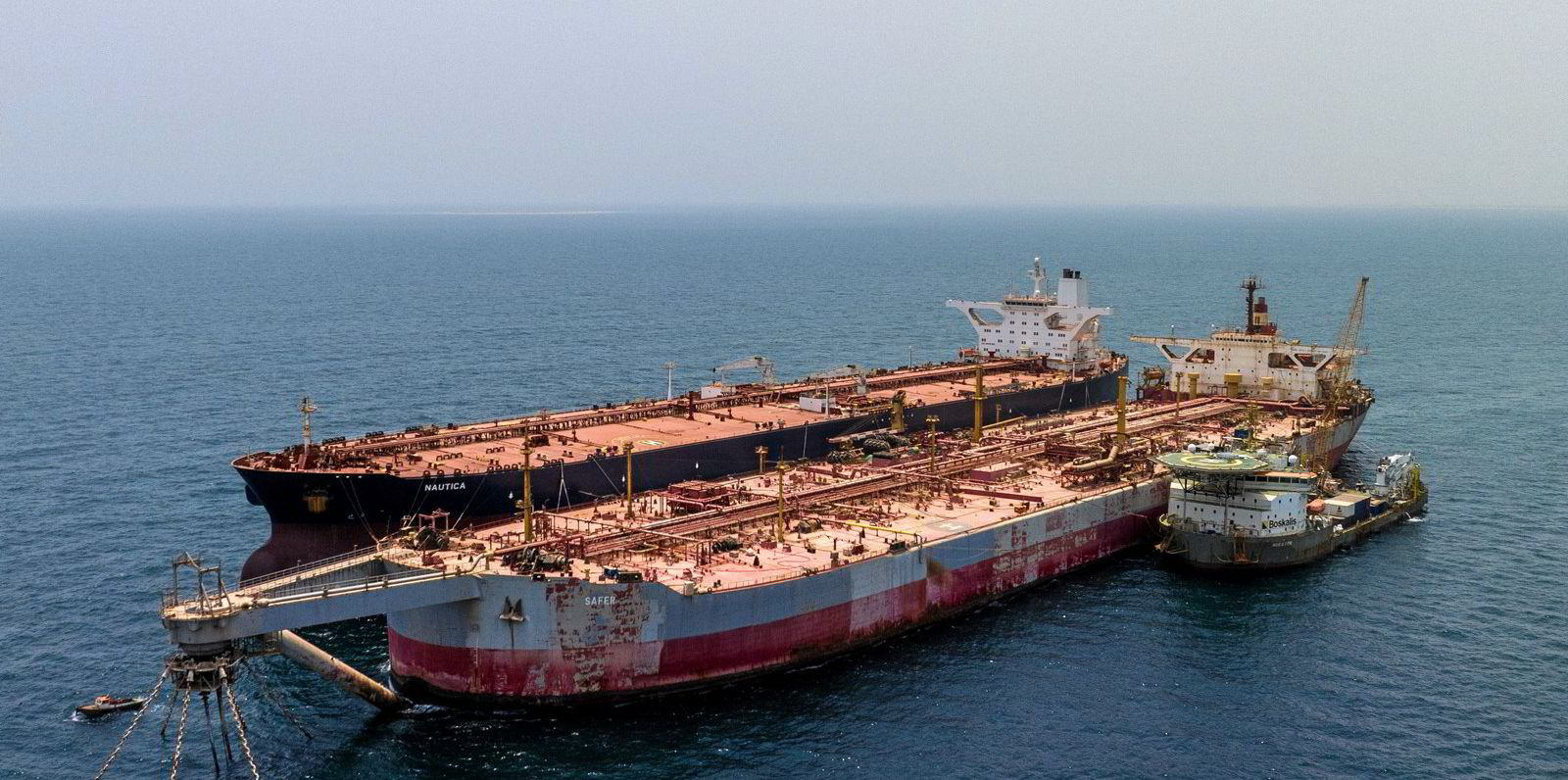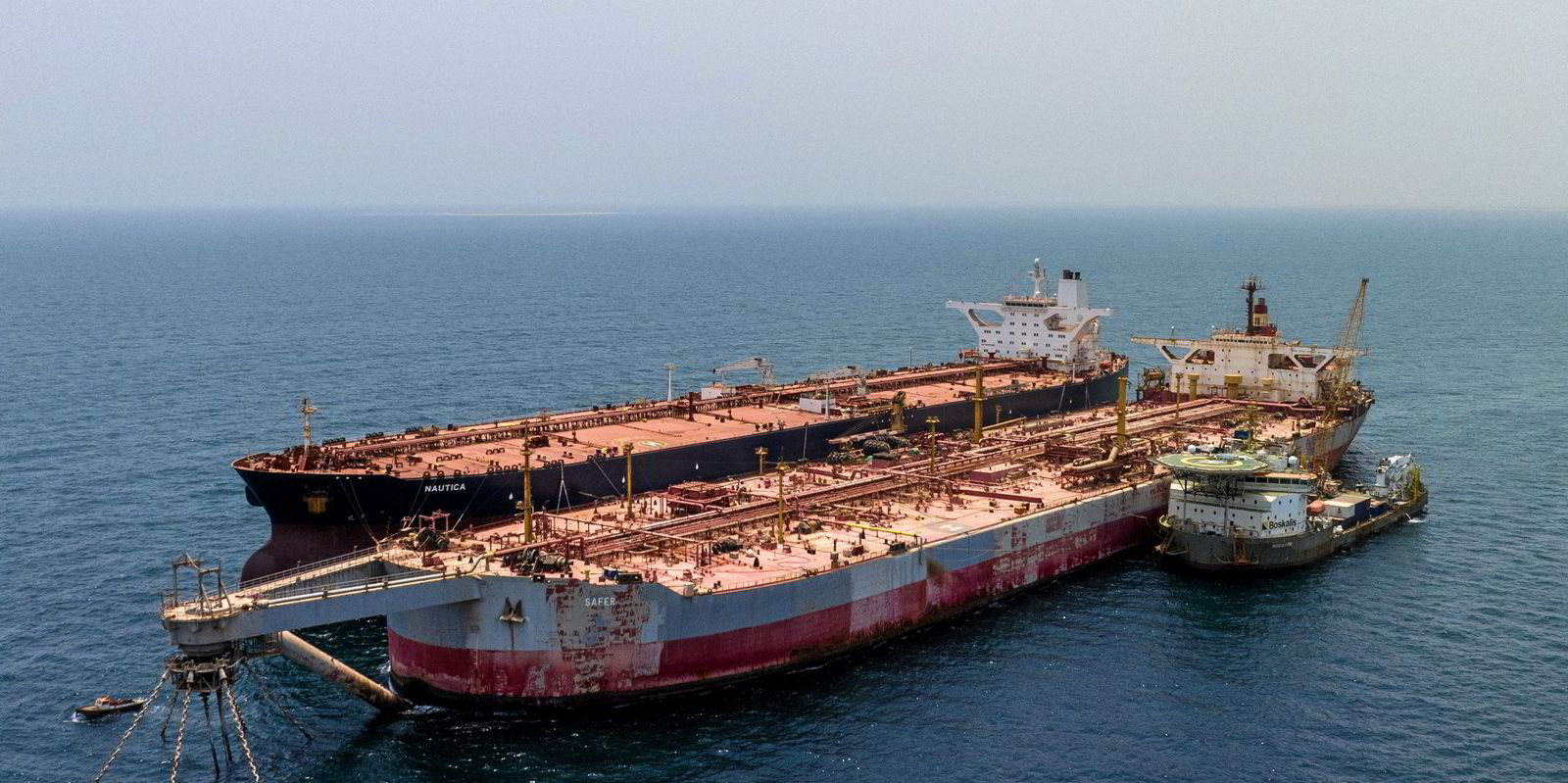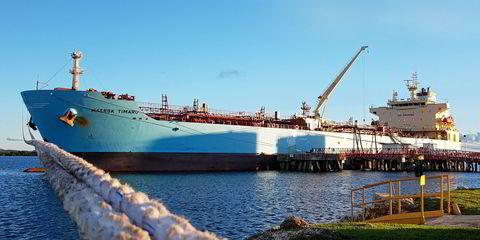A salvage team has successfully cleaned the tanks of a decaying supertanker in the Red Sea following a risky operation to remove 1.1m barrels of oil.
Boskalis said the team from its Smit Salvage unit had now left for Djibouti after helping to moor a replacement for the 406,600-dwt FSO Safer (built 1976), which had been at risk of breaking up and spilling its cargo off the coast of Yemen.
The oil has been transferred to the 307,300-dwt Yemen (built 2008) that was sold to the United Nations-led operation by Belgian tanker giant Euronav.
UN spokesman Stephane Dujarric said the Yemen was at a holding anchorage pending the installation of the specialised buoy. He said $22m was still required to complete the project, taking the total cost to more than $140m.
Costs for the operation had increased because of the surging cost of tonnage in 2022 and the global body had struggled to find a replacement tanker.
“We are counting on further generous support to finish this critical mission,” said Dujarric.
Ownership of the oil remains contested between the internationally recognised government and the Iran-backed Houthis, who seized the capital, Sanaa, in 2014.
The Boskalis 96-loa multipurpose support vessel Ndeavor has left for Djibouti where the crew will disembark before the ship returns to Rotterdam, said the company.
“The departure from Yemen marks the end of a complex salvage operation that began in late May,” said Boskalis.
“With the successful oil transfer a huge environmental disaster with serious humanitarian, environmental and economic consequences was averted.”
The UN estimated that the clean-up operation from a spill from the FSO Safer would have cost $20bn. The Safer is now due to be towed away for scrapping.
It had not been maintained since 2015, owing to the civil war in Yemen, and had deteriorated to a dangerous state.
Read more
- UN declares mission success over time-bomb tanker off Yemen coast
- Salvage teams start pumping oil from decaying supertanker
- Comment: Troubled IMO opts for a safe pair of hands and elects a leader who can get results
- UN-owned ship arrives off Yemen to replace rusting tanker
- UN will start removing FSO Safer’s ‘time bomb’ cargo next week





